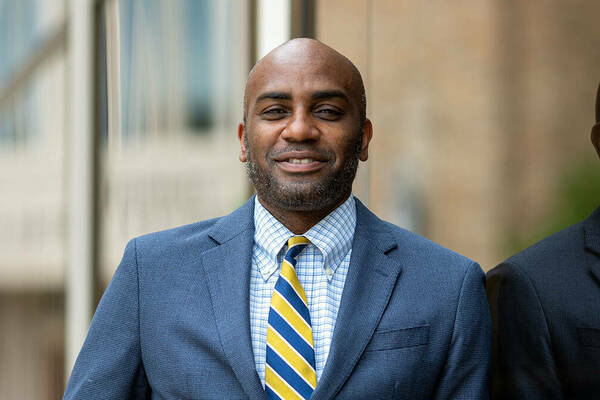Paul Ocobock’s new book Kenyan Coffee and Capitalism in the Era of Anglo-American Empire will provide readers with historical context about their morning brew.
“What I want from this book is for people to have a sense of, as the coffee machine is dripping the coffee into their pot … the long history of this beverage,” said the associate professor of history.
That long history, he said, is steeped in violence during Great Britain’s colonization of the East African country.
“Kenyan coffee … starts off as a product of imperialism,” he explained. “It comes to Kenya on the backs of Christian missionaries.”
After Kenya gained independence in 1963, Ocobock said farmers’ coffee production exploded. By the 1980s, the government made structural adjustments that fundamentally changed how the industry worked.
“Every small town in America now seems to have their own boutique coffee roaster. But those folks can literally get on a plane right now, they can fly to Nairobi, they can get in a bus, they can go up into, like Nyeri, and parts of a coffee country, and they can meet coffee cooperatives and coffee producers and essentially negotiate terms where they can bring that coffee back,” Ocobock said.
“We're so much more connected now to the people who make our coffee than we ever were before.”
In addition to specializing in 20th-century Africa and the British Empire, Ocobock examines histories of capitalism, gender, and sexuality.
His 2017 book An Uncertain Age: The Politics of Manhood in Kenya — which delved into ideas of age and masculinity and how those have changed in Kenya — won the American Historical Association’s 2018 Morris D. Forkosch Prize and was a finalist for the African Studies Association’s 2018 Bethwell A. Ogot Prize.
He said one reason that Notre Dame is an incredible place to write, do research, and teach is because of opportunities for interdisciplinary collaboration that results in telling the best stories.
“I have colleagues who are always interested in what I'm doing,” said Ocobock, who blends archival and ethnographic research.” They're always asking to read my work and offer me help.”


